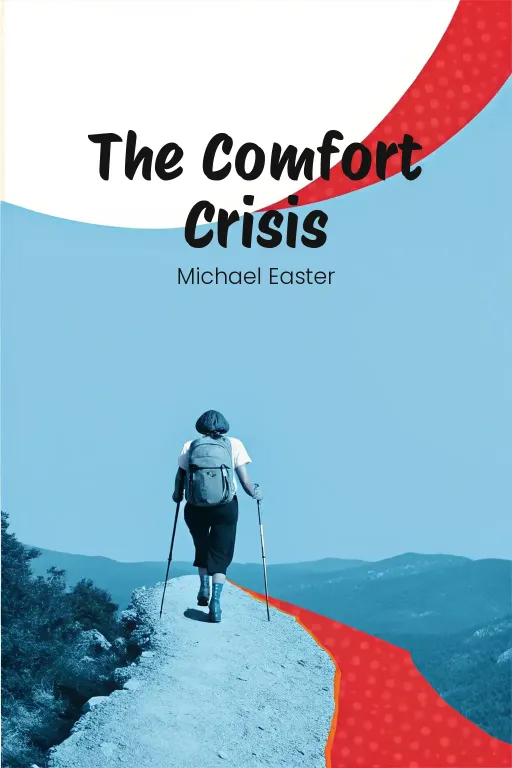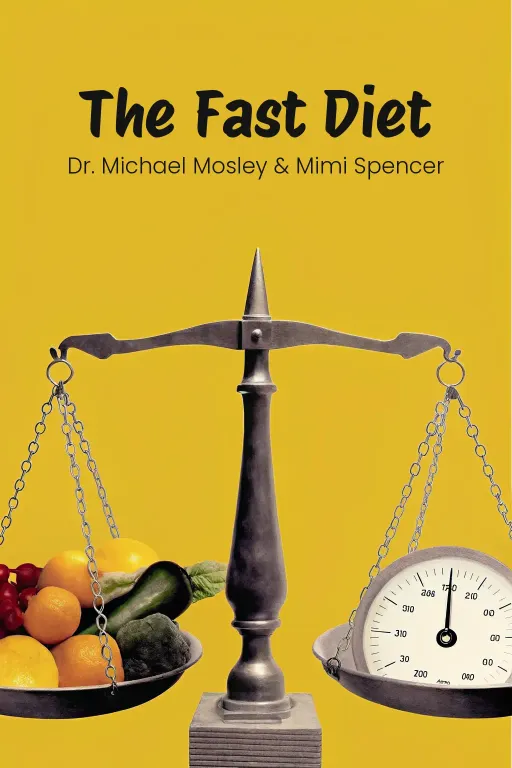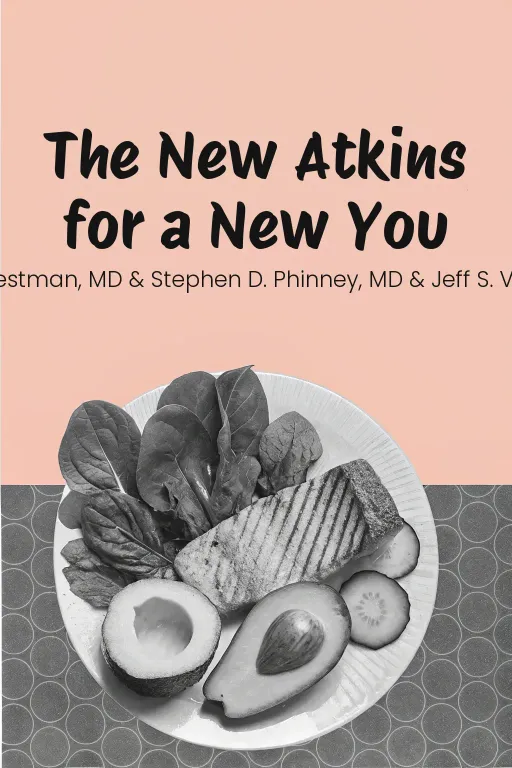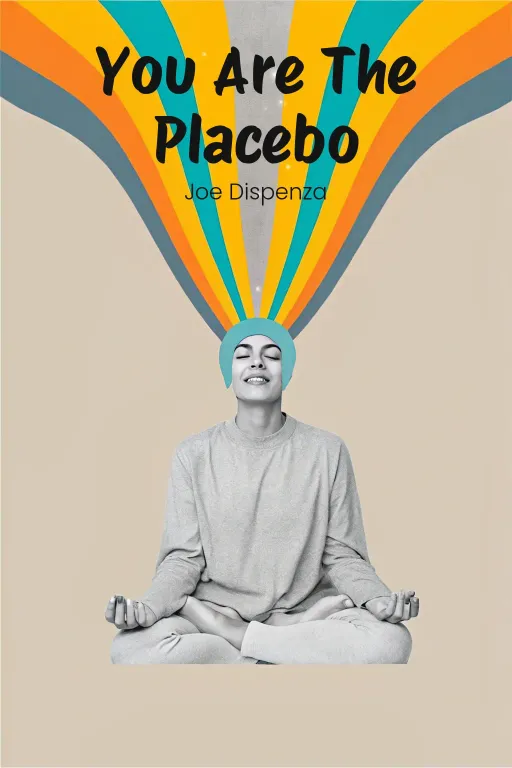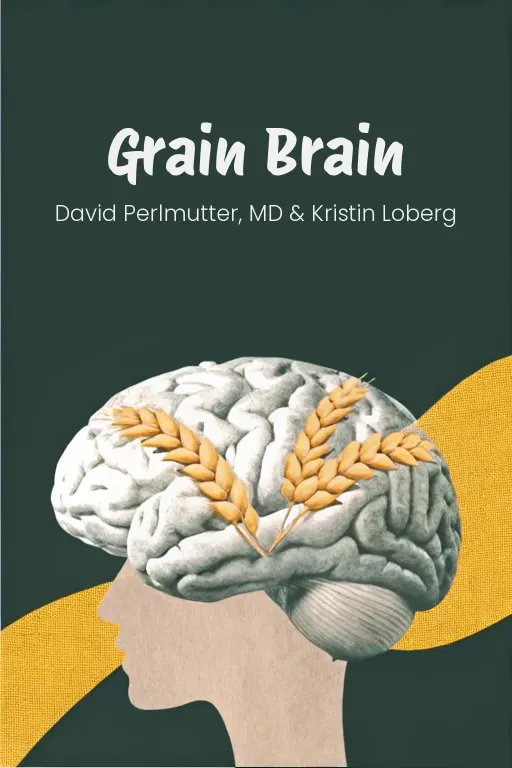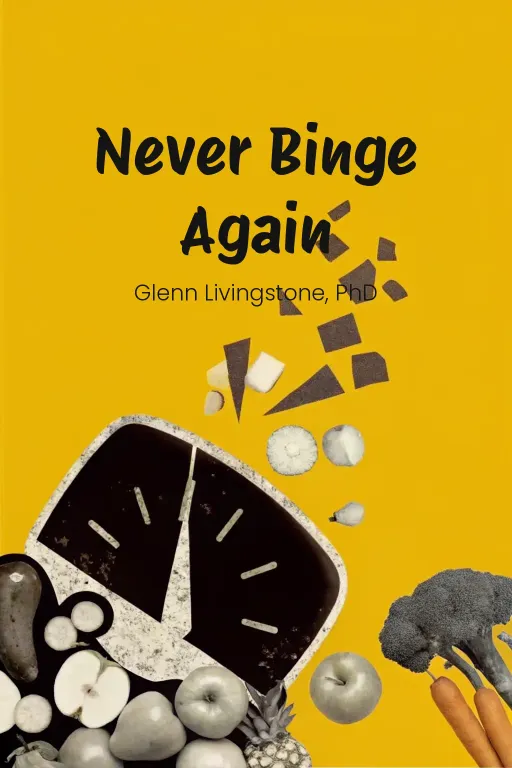
Get Unstuck: The Power of Intentional Struggle
Podcast by Beta You with Alex and Michelle
Embrace Discomfort to Reclaim Your Wild, Happy, Healthy Self
Get Unstuck: The Power of Intentional Struggle
Part 1
Alex: Hey everyone, welcome back! Let's jump right in with a question: when was the last time you “chose” to be uncomfortable? And I’m not talking about hitting traffic, right? I mean, genuinely, meaningfully uncomfortable. Like, a hike that pushed you to your limit, fasting for a day, or even just sitting in silence with your own thoughts, no distractions. Michelle: Ugh, Alex, come on, most of us actively avoid discomfort! Why would anyone do that stuff when we can just, you know, scroll through our phones, order takeout, and call it a night? Alex: Exactly! And that’s precisely the issue. Michael Easter, in his book, “The Comfort Crisis”, makes a really compelling case that our modern obsession with avoiding anything unpleasant, with always seeking the easiest route, is actually holding us back. He takes us through history, dives into the science, and even recounts his own pretty intense trip to the Arctic, all to demonstrate how embracing challenges can unlock our resilience, spark creativity, and give us a sense of meaning we didn't even know we were missing! Michelle: Okay, because nothing screams "peak performance" like fighting off frostbite and polar bears, right? But I get it. It's a fascinating idea. Easter's not just saying "go suffer for the heck of it." He explains why discomfort changes us, backing it up with everything from studies of Amazonian tribes to genetic research in Iceland. So, tell me more. Alex: So today, we’re going to break down three main takeaways from the book. First, we'll look at the psychological and evolutionary reasons why discomfort is actually a good thing. How it builds resilience and gives us a sense of purpose. Then, we'll explore the vital role of reconnecting with nature, remembering that survival skill in a world that's become so overly sterile. And finally, we'll discuss the science-backed ways that discomfort can actually rewire our bodies and minds for better overall health and well-being. Michelle: So, in other words, we’re going to learn how to toughen up, ditch the city, and hack our brains for happiness? Alex: Well, that’s one way of putting it, Michelle! But more than that, it’s about learning to embrace discomfort, intentionally and mindfully, in ways that can lead to a much richer, more fulfilling life. So, let's get started.
The Transformative Power of Discomfort
Part 2
Alex: So, let’s dive into Michael Easter's The Comfort Crisis. His journey starts in the Alaskan wilderness, and it kinda sets the stage for the whole book. Imagine Easter, used to the comforts of modern life, hopping onto a single-engine bush plane—he calls it "empty Campbell’s soup cans with wings"—heading into the Arctic. He's trading the predictable life for a place where survival is anything but a given. Michelle: A "single-engine bush plane"? shudders just the thought is enough to make me want to hide under a blanket! It does paint a picture, doesn’t it? He's literally stepping into the unknown. So, the idea is that we're so coddled in modern life that we've lost touch with our, shall we say, “primal grit”? Alex: Exactly! And Alaska doesn’t hold back. Easter’s facing hunger, brutal cold, and the knowledge that grizzlies and moose are part of his daily commute. It's not just about physical endurance; it gets into your head. He’s confronting the raw realities of survival, things we rarely think about in our cozy, predictable lives. He makes a point that we rarely actually push our own boundaries anymore. Michelle: Okay, fair enough, but why such an extreme? Couldn't he have gone camping in Yosemite or something? Why the need for total discomfort in the Arctic? Alex: Right, but Easter acknowledges that that level isn’t for everyone, okay? But Alaska provides a unique kind of clarity. Stripped of everything, he has breakthroughs, moments where he really understands what matters. The extreme starkness brings out self-awareness and resilience in ways that a campground with Wi-Fi just wouldn't. Michelle: So, it's not about the theatrics, it's about stripping away all the safety nets to see what’s underneath. But...did he ever have a moment of "What have I done?" you know, when the central heating was a distant, fond memory? Alex: Oh, definitely. He’s super open about those moments of mental resistance, when the environment makes him rethink everything. But that’s almost the point—seeing what happens when you push through that resistance. Using Alaska as a core story shows how discomfort unlocks strength and purpose. It's intense, sure, but in a way, it echoes the challenges that humans faced every single day for millennia. Michelle: Which is where the book pivots to history and evolution, right? We weren't really designed for climate control and instant ramen, were we? Alex: Nope. Easter argues that we’re hardwired for resilience because survival demanded it way back when. Hunter-gatherers didn’t have grocery stores. They dealt with hunger, cold, exhaustion just to survive. This engagement with discomfort made them stronger, in every way. Michelle: And there’s science behind this, too. Think about fasting. Easter talks about autophagy, where your body starts cleaning out damaged cells when you go without food for a while—potentially reducing the risk of diseases. But because we’re barely ever “really” hungry in modern life, we miss out on that. Alex: Exactly. Hunger, cold, physical challenge—these were survival requirements for our ancestors, and they triggered processes that kept them sharp. Today, with constant food and heating, those processes just aren't activated. Michelle: And it's not just the body, right? Discomfort can boost mental strength, too. Easter mentions that enduring hunger, for instance, can make us more resilient to other stressors. It’s like our brain figures, if we can handle this, we can handle anything. Alex: Yes! And he ties this to cultural examples, too. Like in Bhutan, where there is a constant awareness of death. A Bhutanese teacher says everyone is dying “right now”, which Westerners may find unsettling, but that discomfort creates mindfulness and gratitude. They process hard truths and become stronger. Michelle: Okay, Alex, real talk though. That Bhutanese approach works in context! In the West, people order pizza and binge-watch Netflix when stressed. So, how do we translate these ideas to people with crazy work schedules, debt, and kids running around? Alex: True—our lives are different. But Easter isn't saying we should all become Bhutanese monks or live in constant agony. It's about finding manageable ways to introduce discomfort. Maybe it’s a weekly fast or turning off your GPS on a hike to sharpen your problem-solving skills. As small as those gestures sound, Easter believes they build up and rekindle that inherent resilience. Michelle: Okay, I get it. Starting small. And this idea of incremental discomfort resonates with me. The “misogi” concept sounds intense, yet intriguing: facing a challenge you're likely to fail at. Alex: This is rooted in a Japanese tradition where people push themselves, physically and mentally, to grow and learn more about themselves. Easter makes the point that the point is not to succeed, but to test your limits. It redefines failure as a necessary step towards growth, rather than something to avoid. Michelle: So, if I try some kind of misogi—like, say, running a marathon without training—you’re saying I’ll gain not just cramps but mental fortitude and clarity? Alex: Well, maybe not the marathon without training, Michelle! But something challenging, yes. The goal is to embrace challenges you’re uncomfortable with—but not completely unprepared for—and let that process build awareness and grow confidence. Michelle: Got it. Controlled discomfort, okay? Not reckless idiocy. This is starting to sound less like torture and more like...strategy.
Reconnecting with Nature and Survival
Part 3
Alex: And that strategic discomfort, Michelle, really sets the stage for the book's exploration of reconnecting with nature and what it means to survive. It gets into how discomfort isn't just a personal thing... it's deeply rooted in our evolutionary biology, you know? Easter tells stories and compares cultures... like the Hadza in Tanzania and the Sherpa communities in Nepal. He really shows how the wilderness forces you to face not just physical challenges, but existential questions about resilience and how everything is temporary. Michelle: Right, because nothing makes you feel your own mortality like hiking through grizzly country or watching a Sherpa carry three times his weight up a mountain. So, Easter wants us to put down our phones and rethink what we’ve lost by walling ourselves off from nature, is that it? Alex: Absolutely. Easter kicks things off with his month-long trek in Alaska. It’s not just some survivalist stunt; it's a deliberate experiment to cut out the modern conveniences and see what happens when you’re forced to rely on your instincts. He brings along Donnie Vincent, this incredibly skilled outdoorsman, to guide him. And Donnie’s big lesson for Easter? You can't control nature. You can only prepare for it and adapt once you're out there. Michelle: That's gotta sting a little for our control-obsessed, hyper-scheduled lifestyles. Did Easter give examples of what that unpredictability looked like in practice? Alex: Oh, for sure. Food was a perfect example. Donnie warns him right away: "You could go weeks without finding anything to hunt." So they rely on these compact food supplies, like freeze-dried meals and energy bars. Easter “jokes” that they taste like "spackling paste," which, okay, sounds like a minor annoyance, but imagine eating that bland stuff day after day. Michelle: "Weeks without finding food" just took this from discomfort to full-blown nightmare for me. But I guess that's the whole point, isn't it? You're facing hunger in a way that most of us just can't even imagine with today's delivery culture. Alex: Exactly. And beyond just hunger, Easter learned lessons about how fragile survival is. For example, something as simple as clothing became a life-or-death decision. Cotton was a no-go because it holds moisture and could give you hypothermia in Alaska’s freezing conditions. Instead, you need wool or synthetics that still insulate even when they're wet. Michelle: That reminds me of when Easter buys those crazy-expensive boots for extreme cold, and his wife “jokes”, “How much would you pay to keep your toes?” But the truth in that is pretty chilling, literally. One wrong decision with your gear, and you’re toast. Alex: It's a stark reminder of how much we take modern conveniences for granted. And it's not just about gear. Easter had to totally rethink his approach to fitness. He realized that his gym routine, which worked fine in the city, wasn’t preparing him for the kind of strength you need in the wilderness. Endurance, specifically weighted hikes and tough terrain, became the focus of his training. Michelle: So, it's not about Instagram biceps, but conditioning your body for actual survival. Seems practical, but also humbling, I guess. I can imagine being out there, hauling gear and watching for grizzlies, really puts things in perspective. Alex: Absolutely. And that transition, from preparation to being fully immersed in nature, is what changes him. Easter talks about how chaotic and overwhelming the wilderness felt to him at first. But over time, he started to appreciate its raw beauty. Even the constant threat of wildlife - grizzlies lurking or a moose blocking the path - brought out both fear and awe. Michelle: I suppose it’s hard to tweet your anxieties when you're face-to-face with a thousand-pound moose. Being fully immersed in nature like that must force you to reconsider what counts as a "problem," right? Alex: Exactly! And that's where his experience connects to the lives of the Hadza and the Sherpas. These communities don't just visit the wilderness; they live in it. They actually thrive because they're so connected to its challenges. Michelle: Let's start with the Hadza. Easter describes them as one of the last hunter-gatherer societies, right? They’ve kept this incredibly active, physically demanding lifestyle that's similar to what our prehistoric ancestors did. Alex: True. The Hadza hunt, gather roots, and walk long distances every day. For them, discomfort isn't something to avoid; it's just life. They're constantly dealing with hunger, exhaustion, and the constant struggle to survive. But that struggle makes them stronger, both as individuals and as a group. Michelle: Meanwhile, we complain about walking to the lobby to pick up DoorDash. But I’m curious, does Easter mention how this kind of endurance specifically helps the Hadza? Alex: He talks about how their daily activity keeps them incredibly healthy. Even though they often face hunger, they hardly ever suffer from chronic diseases like heart disease or obesity. Researchers who study the Hadza have even noticed that they're really resilient to stress, and they think it's because of their constant movement and problem-solving. It's a powerful reminder that nature's discomfort isn't something to just overcome; it's what sustains them. Michelle: And the Sherpas are another interesting example. These are people whose connection to extreme environments isn't just cultural, but also physiological, right? Alex: Exactly. They’ve literally adapted to high altitudes, and their bodies use limited oxygen very efficiently. But what’s fascinating is that these adaptations aren't just genetic; they're also developed by constantly being in rugged and challenging environments. Sherpas carry huge loads over dangerous terrain, and they do it with a kind of ease that baffles Western climbers, many of whom struggle despite having all the best gear and training. Michelle: So what we’re seeing here is resilience in action, whether it's the Hadza dealing with hunger or the Sherpas conquering mountains. Nature challenges them, but it equips them with unparalleled strength. Meanwhile, most of us in modernity have lost that connection, and the resilience that comes with it. Alex: Exactly. And that disconnect is what sparks Easter's call to action: rewilding. We don’t need to become hunter-gatherers or live in the Himalayas, but we can intentionally add more discomfort into our lives to reconnect with these primal strengths. Michelle: So what does that look like in practice? Besides fasting and ditching your GPS, how does Easter suggest we actually start rewilding our modern lives? Alex: By doing things that require effort, physicality, and mindfulness. That could be hiking, carrying weighted packs, or even just simplifying your possessions. The idea is to break free from the conveniences that dull our ability to adapt and thrive. Michelle: And embrace discomfort as a tool, not a punishment. It feels empowering choosing to challenge yourself, even in small ways, instead of letting comfort define your limits. Alex: Exactly. Rewilding isn’t just about surviving; it’s an invitation to rediscover resilience, clarity, and a deeper connection to ourselves and to the world around us.
The Role of Discomfort in Physical and Mental Health
Part 4
Alex: This reconnection with nature naturally leads us into the role of discomfort in shaping our physical and mental health. Easter weaves together genetic research, like Iceland’s resilience, behavioral nutrition through experts like Trevor Kashey, and psychological studies, such as the three-day effect. He makes a “really” compelling case for discomfort as a catalyst for adaptation and growth. Michelle: It's a bold move to champion discomfort, honestly, in a world built to avoid it. Think about it—our daily lives are designed for maximum ease, right? From same-day shipping to voice-controlled everything. If Easter's right, are we outsourcing our humanity by running from even the smallest struggles? Alex: That’s precisely the argument he makes! The book explores how this comfort obsession not only undermines our resilience, but it can also drain us of health, creativity, and even joy. Easter’s perspective isn't to demonize convenience, but to remind us that discomfort is essential for growth. Misogi, fasting, rucking—they all tie into his larger thesis: discomfort rebuilds. Let's start with misogi, an ancient Japanese practice—Easter argues that it pushes you to your edge and forces real transformation. Michelle: Misogi, though—it sounds intense. We're talking about deliberately setting up challenges that you're almost certain to fail, right? Like, borderline masochism. What's the point if you're doomed to failure in the middle of it? Alex: It might sound over the top at first, but it's designed to redefine your limits. The whole idea comes from ancient Shinto rituals, which were about spiritual cleansing. Today, people like Dr. Michelleus Elliott, who works with elite athletes, have adapted it as a tool for mental and physical breakthroughs. The point isn't success, it’s discovery. To face an overwhelming challenge, one so unpredictable and demanding that succeeding or failing becomes secondary to the growth it sparks. Michelle: So, these athletes aren’t just bench pressing or sprinting on predictable tracks. They’re being thrown into the chaos of intense and uncertain situations to, what, shock their systems into adaptability? Alex: Exactly. Dr. Elliott believes predictable routines dull skills—physical and mental. He crafts extreme challenges, like paddleboarding miles across rough seas or hiking through brutal terrains, where success is uncertain. These kinds of experiences create flow states—moments of heightened focus and engagement—which can lead to real breakthroughs. Athletes who undergo these challenges often develop not just better performance, but also greater confidence and clarity. Michelle: I'll give him this—there's something hauntingly true about that. When's the last time you looked back at a predictable, easy day and felt proud of it? The most memorable experiences tend to be those where we went out on a limb, right? Alex: Exactly! It’s about tapping into those moments of discomfort to reshape how we see our strengths—and our limits. Misogi opens a door to eustress, positive stress that sharpens us. But misogi is just one part of the larger puzzle. Let’s talk about fasting, which Easter explores as another tool to harness discomfort, this time at the cellular level. Michelle: Okay, fasting—this isn't just the latest health trend, right? Easter makes a deeper connection here? Alex: Very much so. He dives into the science behind why occasional hunger isn't only natural, but essential. It goes back to our evolutionary biology. Humans evolved in feast-or-famine cycles, and our bodies developed mechanisms to thrive during those famine phases. Specifically, fasting activates autophagy, which is like your body’s repair mechanism. Think of it as Marie Kondo-ing on a cellular level—clearing out damaged, dysfunctional cells. Michelle: Autophagy. That’s the one linked to slowing aging, fighting diseases, and improving overall cellular health, right? So, in a way, hunger forces the body to clean house, but because we’ve got food at our fingertips every waking second, we’ve kind of shut that system down? Alex: Right. Constant eating—especially the way we snack every couple of hours—keeps mTOR, another cellular pathway, switched on, promoting growth. But mTOR’s counterpart, which activates autophagy, only flips on when food intake stops. Studies link this process not just to longevity, but to reducing chronic inflammation and improving brain health. It’s what Dr. Jason Fung calls being like a hungry wolf—sharp, agile, and alert—compared to the sleepy satisfaction of a full belly. Michelle: And don’t forget, Easter mentions how fasting doesn’t just brighten our biology; it sharpens our minds too, right? It’s almost ironic—starving a little actually makes you think clearer. Alex: Exactly. It’s yet another evolution-driven mechanism. When early humans faced scarcity, they needed focus and creativity to secure their next meal, not sluggishness. Modern studies back this up, showing how fasting increases cognitive performance, productivity, and even mood stability. In fact, Easter argues it reframes the way we view hunger, not as an annoyance, but as an opportunity for growth—a very literal exercise in resilience. Michelle: Fascinating. But now let's pivot from the kitchen to the great outdoors. Easter also loops in rucking—this ancient, utilitarian movement of carrying a load over long distances. It doesn't sound glamorous, but he makes a strong case for it. Alex: He absolutely does. Rucking ties back to hunter-gatherer roots. Early humans didn’t just stroll through forests—they hiked for days, carrying firewood, water, or game. It’s a physical activity that's wired into our history, isn’t it? And according to Easter, it's one of the most accessible ways to build not only strength, but also resilience without the intimidation of, say, CrossFit. Michelle: Rucking—so, walking with a weighted backpack. It sounds painfully simple. Where's the magic in that? Alex: It’s the combination of simplicity and effectiveness. By carrying weight during a walk, you engage your core, improve posture, and work multiple muscle groups, all while avoiding the joint strain high-intensity exercises can bring. Emily McCarthy, who co-founded GORUCK, champions rucking as the ultimate low-tech, high-impact fitness activity. It’s functional, low-barrier, and mindfully uncomfortable—exactly what Easter’s advocating for. Michelle: And I could see how it mentally shifts your connection to movement. It’s one thing to lift weights in a gym, but carrying a literal load through nature might actually mimic survival instincts. There’s probably a catharsis in that rhythm, too. Alex: Absolutely. Rucking embodies discomfort that builds strength in an almost meditative way. Easter frames it as an antidote to our sedentary modern lives—forcing us to engage with our environment and our bodies in a completely different, primal way. Michelle: So whether it’s carrying weight, fasting, or embracing failure, Easter's point keeps circling back: discomfort, when intentional, is a powerful growth engine. But it's not just individual; he also looks at how cultures, like Iceland’s resilience, show us how collective challenges can shape entire populations. Alex: And that's where he starts bridging physical, mental, and even cultural connections to discomfort. Moving forward, let's unpack how Iceland's unforgiving environment, paired with their genetic adaptability, offers profound lessons for modern resilience.
Conclusion
Part 5
Alex: Okay, so today we're diving into Michael Easter’s really interesting take on discomfort. He basically argues that embracing it can be this amazing tool for growth, resilience, and even mental clarity. He pulls from all sorts of things—his own Arctic trip, ancient practices like misogi, fasting, rucking… it's all in there. And the core message is that constantly avoiding discomfort might actually be holding us back. Michelle: Right, he builds a pretty convincing argument, doesn't he? Whether it's looking at the Hadza's incredible stamina, the Sherpas' sheer grit, or even just how we're wired genetically, it all points to the fact that our ability to really flourish is deeply connected to tackling challenges head-on. But I guess the tricky part, the question for us now, is how do we even do that? How do we intentionally weave this into a world that’s practically built on convenience and making things easy? Alex: Exactly! And Easter makes it clear he’s not saying we should ditch comfort altogether. More like, let's deliberately reintroduce these small, manageable doses of discomfort back into our lives. Think something simple, like a short fast, switching off the GPS when you're hiking, or even just adding a bit of extra weight when you’re out walking. The idea is to sort of rebuild those muscles, that adaptability, that focus, and that sense of purpose that modern life might have inadvertently dulled. Michelle: So here's a little something to chew on: What's one, just one way you can intentionally invite a little discomfort into your life this week? It doesn't have to be some epic adventure in bear territory! Maybe it's just a digital detox for an evening, choosing the stairs over the elevator, or even just allowing yourself to sit quietly with your thoughts for a few minutes. Because like Easter says, discomfort isn't the enemy here. In fact, it might just be the spark that ignites growth. Alex: Perfectly put, Michelle. Let's take on this challenge of just stepping slightly beyond what feels easy and comfortable. Who knows, we might just discover some “really” powerful things about ourselves along the way. Thanks for tuning in, everyone. We'll catch you next time! Michelle: See you all next time—and hey, maybe think twice before automatically opening up that Uber app, okay?
